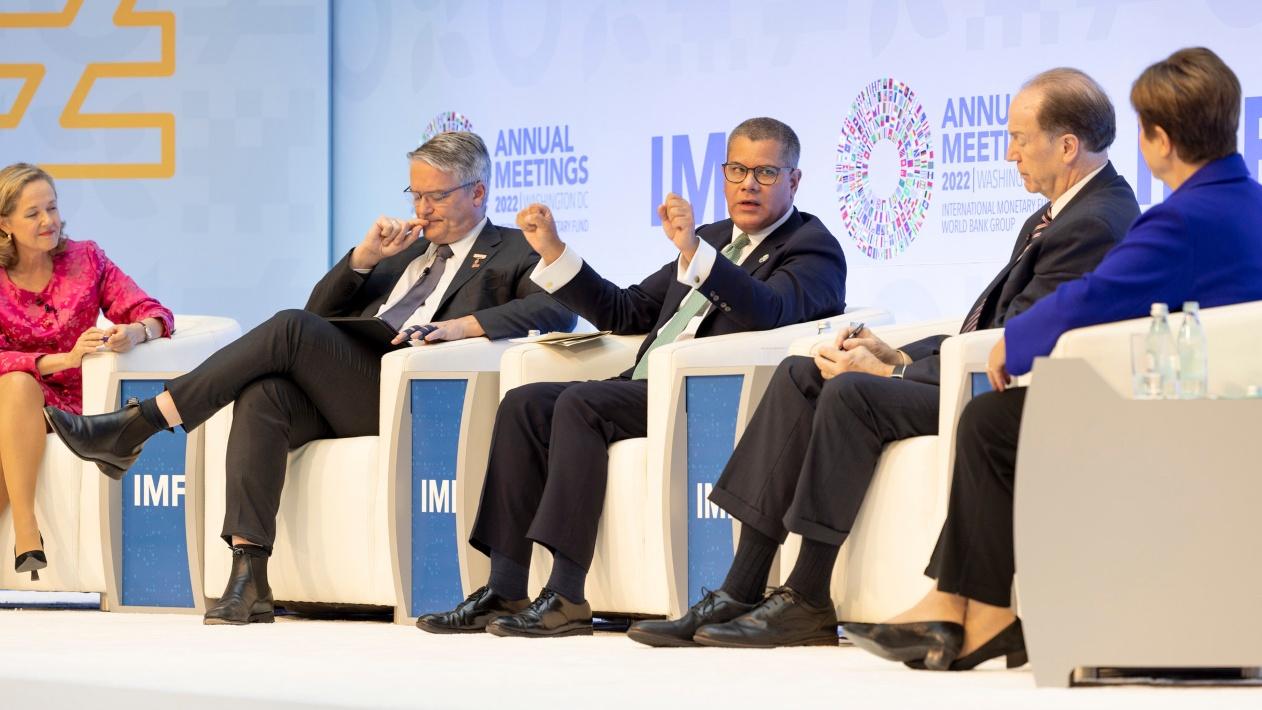

 Research has shown that an analysis of political leaders’ personalities can help to make sense of their approach to political decision-making. With the UK facing a range of significant domestic and international challenges, Consuelo Thiers, Juliet Kaarbo and Ryan Beasley apply a framework to understand the personality characteristics of new Prime Minister Rishi Sunak, describing what their findings could mean for policy directions.
Research has shown that an analysis of political leaders’ personalities can help to make sense of their approach to political decision-making. With the UK facing a range of significant domestic and international challenges, Consuelo Thiers, Juliet Kaarbo and Ryan Beasley apply a framework to understand the personality characteristics of new Prime Minister Rishi Sunak, describing what their findings could mean for policy directions.
Rishi Sunak has only been the UK’s Prime Minister for a few weeks, inheriting from both Liz Truss and Boris Johnson numerous pressing political and international challenges, from the floundering UK economy to the war in Ukraine. But just how different is Rishi Sunak from his predecessors, and does this help us foresee how he might tackle these problems?
Decades of research have shown that the analysis of political leaders’ psychology can help shed light on their tendencies when it comes to making decisions and their role in shaping states’ foreign policy behaviour. There are many ways to investigate leaders’ personalities, and we used a well-established profiling framework known as Leadership Trait Analysis.
Leadership Train Analysis is a technique that scores people using seven personality characteristics: a belief that one can control events; a need for power; conceptual complexity; self-confidence; a tendency to focus on problem-solving versus maintaining relationships; distrust; and in-group bias. These traits are assessed with a computer program that analyses the types of language and word choices leaders use in spontaneous public statements and interviews. Using this technique, which has itself been the subject of research, we analysed the content of over 39,000 of Sunak’s words during the premiership campaign from July to September 2022. We then compared Sunak to the two other Prime Ministers the UK had in 2022 – Liz Truss and Boris Johnson – and to others in recent UK history.
Sunak is different to other prime ministers
Sunak has a very distinct personality profile compared to the average of UK Prime Ministers. He is statistically different on five of the seven Leadership Trait Analysis characteristics – which is notably unusual. Sunak has a very high belief in his ability to control events, is very highly motivated by power, is more people- than task-oriented, tends to see the world in binary terms and is highly distrustful.
What does this profile mean for Sunak’s leadership? Based on prior research into what these scores mean in practice, we would expect him to challenge rather than respect constraints – be they international, institutional, domestic-political or financial. He may also be less focused on solving problems and more concerned with how people are reacting to him and how he can secure and maintain power. Sunak is likely to be active in policymaking and may push through policies confidently, believing he can control the outcomes. He may be reluctant to listen to advice, delegate responsibility to others and compromise. He may prefer action over analysis and be hypersensitive to criticism. He may advocate hawkish foreign policies.
Of course, leaders interact with their political environments, they can change over time, and other factors may intervene to affect final decisions and political processes. It may also be the case that the rhetoric we analysed was affected by the context of the leadership race. But extant scholarship provides strong evidence that personality traits, as assessed through the Leadership Trait Analysis method, are stable across contexts and time and significantly shape leaders’ decision-making processes and policy choices. And Liz Truss, in the same leadership race as Sunak, exhibited a different personality profile, despite similar party pressures.
Sunak is more like Johnson than Truss
All three recent Prime Ministers tend to believe they can control events and are motivated by power concerns, which in combination makes them more prone to challenge constraints than previous UK leaders. But Sunak lacks the high self-confidence of Johnson and Truss, making him somewhat more open to seeking information before taking actions, somewhat more likely to adjust to negative feedback and somewhat less of a risk-taker.
Sunak and Johnson have more in common. While all three tend to challenge constraints, this is especially true for Sunak and Johnson, with each scoring very high on power motivations and believing they can control events. And Sunak, like Johnson, is very people-oriented. Prioritising group morale and building relationships over focussing on the task at hand has been associated with non-cooperative and conflict-prone behaviour in the international arena. While Sunak’s lower self-confidence may make him a bit more open to information than Johnson, they both tend to interpret it conceptually in more simplistic, categorical ways. This in turns reduces situational flexibility and truncates both analysis and planning.
A diversionary leader?
Where Sunak differs from Truss, Johnson and the average of other Prime Ministers (including Thatcher and Blair) is in his high level of distrust. This means Sunak is less likely to trust and work closely with his advisors, political opponents, parliament and other world leaders than his predecessors. Sunak’s level of distrust is not as high as some other leaders, such as Donald Trump and Rodrigo Duterte, but his score is higher than average when we compare him to 284 leaders around the world.
Distrustful leaders are also prone to perceiving external threats and to engaging in aggressive foreign policies. They are also particularly likely to pursue external aggression when their country is experiencing economic downturns. This is especially true for leaders with less nuanced thinking, like Sunak. Aggressive foreign policy in times of economic downturns is a form of diversionary foreign policy. Foster and Keller’s research has found this combination of distrustful leaders and bad economies produces diversionary foreign policies in both the US. and the UK. Diversionary foreign policy does not necessarily mean the use of military means, but it does mean that Sunak may be confrontational abroad to distract from economic woes at home.
There is no mistaking that the UK will continue to face extraordinary challenges. Leadership changes during tough times often come with a hopeful sigh of relief, and we foresee both positive and negative potential outcomes from Sunak’s personality profile. Sunak’s simplistic thinking, relationship-focus, propensity to challenge constraints and distrusting character could push him towards much-needed decisive actions undistracted by critics, second-guessing advisors and deceptive adversaries. But equally they could spell disaster if he doggedly pursues ill-advised policies that exacerbate rather than ameliorate the tough times ahead. In either event, understanding Sunak’s leadership profile and his similarities and differences with other UK Prime Ministers can provide valuable information to help us make sense of the UK’s future policies and the responses to the challenges it faces.
_____________________
About the Authors
 Consuelo Thiers is a Fellow in International Security at the Institut Barcelona d’Estudis Internacionals (IBEI). Visit their website.
Consuelo Thiers is a Fellow in International Security at the Institut Barcelona d’Estudis Internacionals (IBEI). Visit their website.
 Juliet Kaarbo is a Professor of International Relations with a Chair in Foreign Policy at the University of Edinburgh and a founding Co-Director of the Scottish Council on Global Affairs. Visit their website.
Juliet Kaarbo is a Professor of International Relations with a Chair in Foreign Policy at the University of Edinburgh and a founding Co-Director of the Scottish Council on Global Affairs. Visit their website.
 Ryan Beasley is a Senior Lecturer in the School of International Relations at the University of St Andrews. Visit their website.
Ryan Beasley is a Senior Lecturer in the School of International Relations at the University of St Andrews. Visit their website.
Photo: Prime Minister Rishi Sunak arrives in Downing Street. Picture by Lauren Hurley/No 10 Downing Street. Taken from Flickr and licensed under CC BY-NC-ND 2.0.






